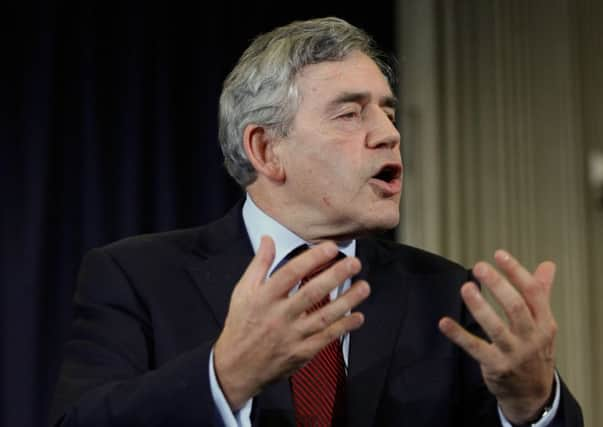SNP MP slams Gordon Brown over gold sell off


Roger Mullin (Kirkcaldy and Cowdenbeath) raised the issue as he criticised the current Government’s plan to sell Royal Bank of Scotland shares at a loss.
During Treasury questions, he said: “The last chancellor to run a budget surplus was Gordon Brown thanks to a sale-off of gold at rock bottom price.
Advertisement
Hide AdAdvertisement
Hide Ad“Now we have this Government pursuing a budget surplus by selling off RBS at a loss.
“When are we likely to get a banking strategy rather than a costly political gimmick?”
Chancellor George Osborne announced the move in his Mansion House speech last week, saying the “decision point” had been reached in light of the conclusion of the Rothschild review that the loss to the taxpayer would be more than offset by the profits on other bank share sales, including its stake in Lloyds.
He admitted that it stands to make a loss of about £7 billion if the entire stake is sold off in one go.
But he cited an analysis by Rothschild finding there would be an overall profit of £14 billion if all the Government’s remaining shares in all the bailed-out banks are sold.
Responding, Mr Osborne joked: “I never thought I’d hear the member for Kirkcaldy and Cowdenbeath admit that we sold the gold at the wrong price.”
He has previously described Mr Brown’s decision to sell nearly 400 tonnes of gold as “one of the worst economic judgments ever made by a chancellor”.
Mr Brown, who stood down at the end of the last Parliament, sold 395 tonnes of gold in 17 auctions between July 1999 and March 2002 at an average price of 275.6 dollars (£174.5).
Advertisement
Hide AdAdvertisement
Hide AdOn RBS, Mr Osborne said the Government had a “serious decision” to make.
He went on: “Do we continue to believe that at some point we might get the money back the last Labour government put in or do we actually take the advice of the independent reports that have been commissioned and the Governor of the Bank of England that now is the right time to start selling RBS?
“Indeed that ... might stimulate a higher share price, but above all it will help support the British banking system.
“The sooner we can get that business back into the private sector, the more we can support the general economy.”
RBS saw its stock market value rise by as much as £900 million after the Chancellor’s announcement.
Shares climbed by around 2% though some City analysts questioned the timing of the announcement and one expert suggested it was unlikely that taxpayers would ever get all their money back.